
Wisdom Tooth Removal Newbury Park
Here you will find information on: What are wisdom teeth? Causes, wisdom tooth decay, common symptoms, how wisdom teeth are removed, recovery time, medication, and postoperative success.
Make A Quick Appointment
If you are experiencing discomfort or pain in your back molars, it’s possible that your wisdom teeth are starting to emerge. At Newbury Park Dentist, we specialize in providing comprehensive dental care, including wisdom teeth evaluations and treatment options.
Most people have heard of third molars, also known as wisdom teeth, but not everyone knows when they appear in our mouth or what kind of problems or complications they can generate. Wisdom teeth are often considered to be related to the onset of pain, but this does not happen in all people, nor does everyone experience complications.
There are four different types of wisdom teeth that may develop, each with its unique characteristics that determine how they grow and develop. These types include mesial-impacted wisdom teeth, vertical-impacted wisdom teeth, horizontal-impacted wisdom teeth, and fully erupted wisdom teeth.
As a leading wisdom teeth dentist in Newbury Park, our team of experts is highly skilled in providing treatment for all types of wisdom teeth. We offer a range of services, including wisdom teeth extractions, to alleviate your symptoms and protect your oral health.
If you experience pain or discomfort related to your wisdom teeth, over-the-counter pain relievers or prescription medications may be recommended to alleviate your symptoms. However, pain relief is only a temporary solution, and it’s essential to address the underlying issue through professional dental care. At Newbury Park Dentist, we provide personalized care and treatment options to ensure that your wisdom teeth are healthy and properly aligned.
In conclusion, taking care of your wisdom teeth is crucial for maintaining your overall oral health. Regular checkups with a wisdom teeth dentist like Newbury Park Dentistry, practicing proper oral hygiene habits, eating a healthy diet, and seeking professional dental care when necessary can help prevent complications and ensure that your wisdom teeth do not cause long-term damage to your oral cavity. Contact Newbury Park Dentist today to learn more about our wisdom teeth services and schedule an appointment..
The third molars or wisdom teeth are the last four molars located on each side of the jaws behind the second molars.They are called wisdom teeth because of the age at which they appear since people at that age have more developed and complete wisdom than when the rest of the permanent dentition appears.These usually appear in humans between 18 and 25 years of age and may never appear, although they can appear at younger ages or later.
Sometimes only some of them erupt.The appearance of wisdom teeth dates back to our ancestors when highly developed jaws were needed to ingest food that required more chewing, which is why they had more space to house the wisdom teeth.However, as the human species changed its diet, smaller jaws began to develop. That is why you can find wisdom teeth growing in an inappropriate direction or shape today due to lack of space.
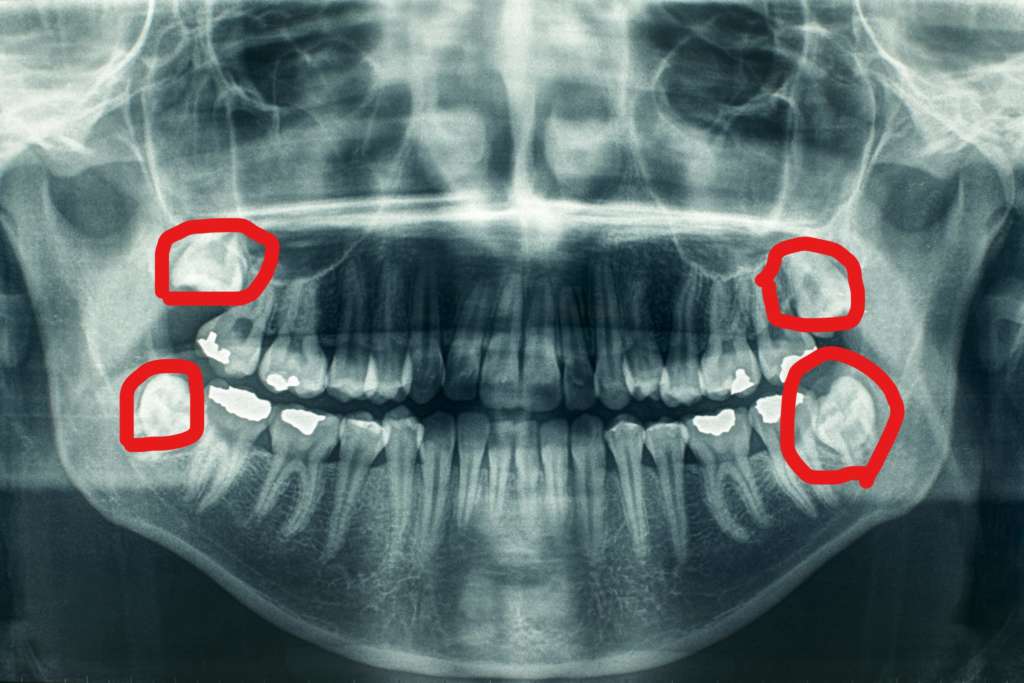
Toothache is an unpleasant experience that perhaps at some time in our life we may have experienced, and wisdom teeth are no stranger to it; the reasons why it hurts when wisdom teeth appear are the following:
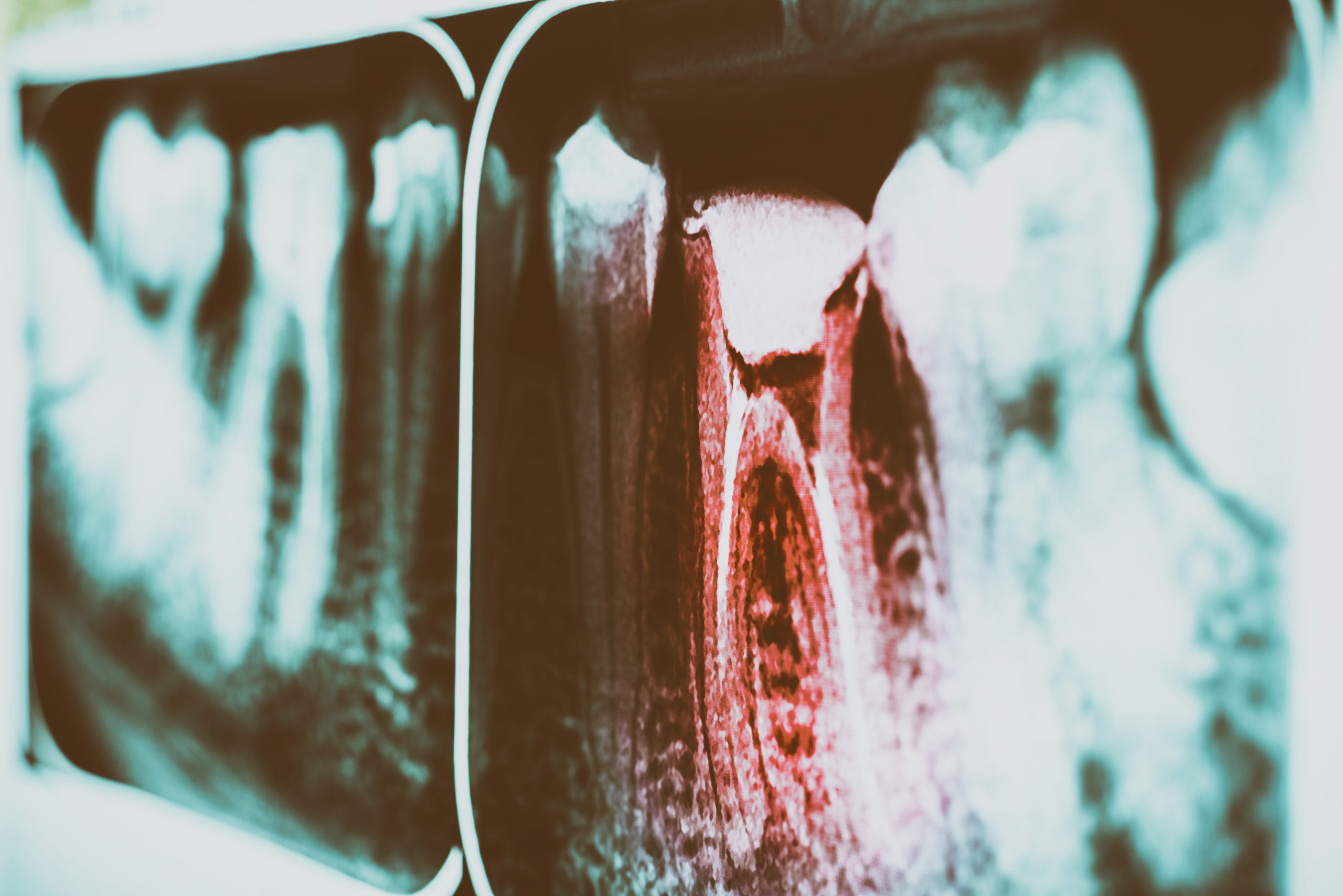
When the wisdom teeth erupt or are partially visible in the mouth, they can suffer from caries since brushing in this difficult to access area will be deficient. In many cases, inadequate hygiene will cause the wisdom teeth to be more prone to develop a carious lesion and later pain in them.
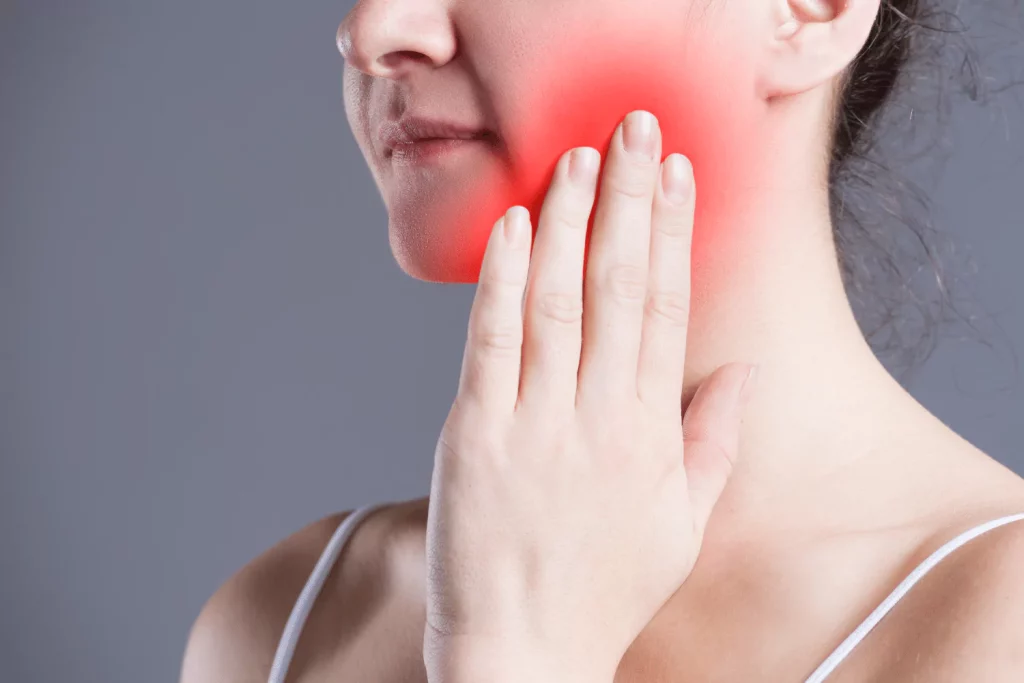
Most of the population does not have enough space, and the wisdom tooth emerges with difficulty. This can cause it to grow crookedly or in thewrong position causing pain, either because it pushes the neighboring tooth, presses the nerve that innervates the mouth, or some structure nearby.
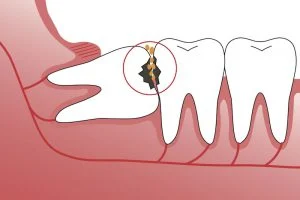
In the process of eruption of wisdom teeth, the gums can also be damaged, leading to problems such as pericoronitis, causing inflammation and infection in the gum surrounding the wisdom teeth by the accumulation of bacteria in this area
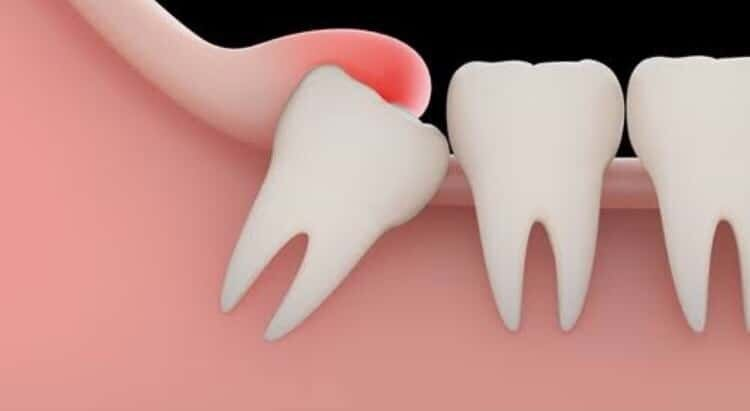
Cyst formation occurs when the sac that surrounds (and in which the wisdom teeth are formed) fills with fluid.The cyst can damage the jaw, teeth, bone, and nerves in the affected area. And if not treated in time, it can lead to major problems.
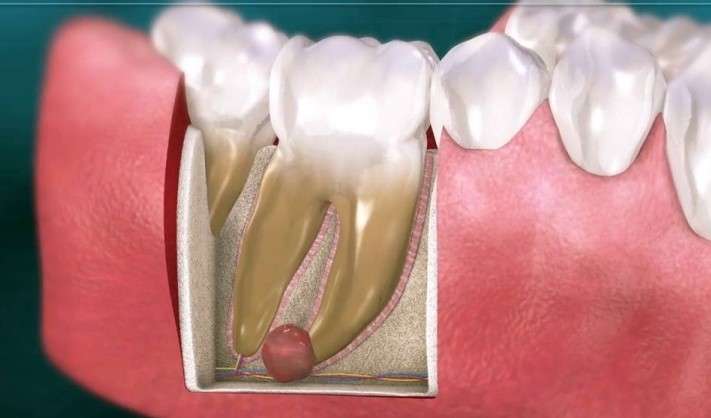
Many patients with impacted third molars have no symptoms, but when the patient reports discomfort, it is usually because these teeth are infected, associated with pericoronitis. It may be noted:
· Pain in the posterior area of the affected wisdom tooth. · Inflammation of the face · Trismus or limitation of mouth opening · Halitosis or bad breath · Tenderness with enlargement of the submaxillary ganglions.
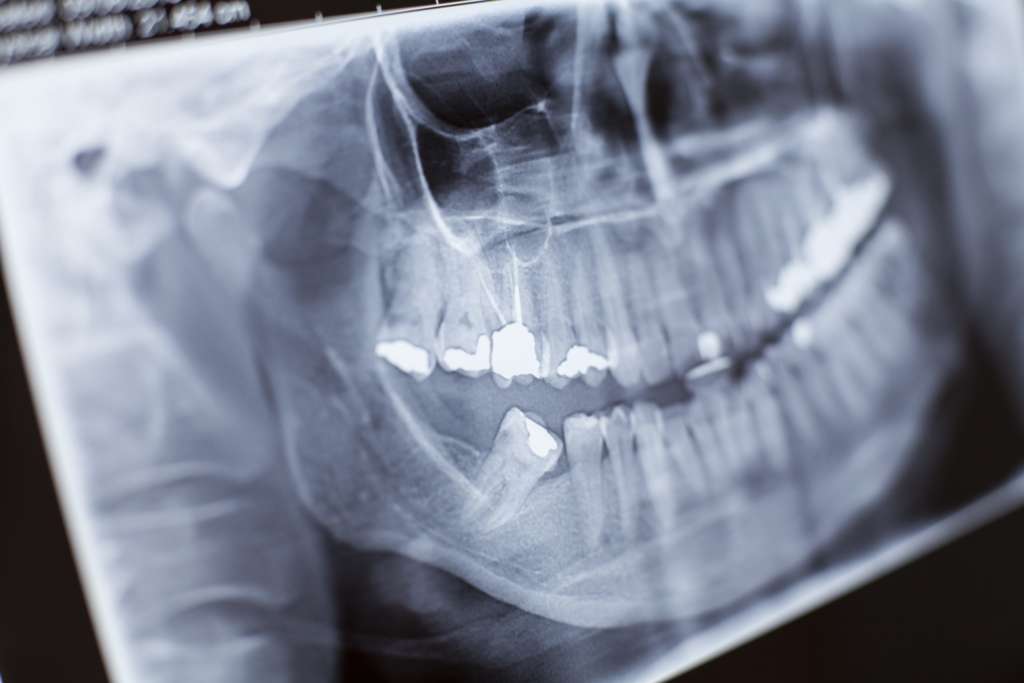
In the case of requiring extraction of wisdom teeth either by presenting symptoms that harm the patient extraction is performed according to the following procedure: · First, some type of local anesthetic will be applied to the area. · After this, the gum tissue over the tooth or around it will be opened. · In some cases, it is necessary to remove the bone surrounding the wisdom tooth. ·
Then we proceed to extract the wisdom tooth, depending on the wisdom tooth’s position and anatomy because some of them require sectioning into parts to make it easier to extract. · After the wisdom tooth has been extracted; stitches may be needed, then these should be removed 5-7 days after the surgery. · A gauze dressing will be placed to bite down on for 30 – 45 minutes to stop the bleeding.

If a wisdom tooth has not enough or is impacted and is also causing pain, infection, or other dental problems, it may need to be extracted. If the wisdom tooth is also deeply impacted or if extraction requires an in-depth surgical approach, your dentist may recommend that you see an oral surgeon.This procedure can often be done at the Channel Island Family Dental office and by our dentists in Oxnard, Santa Paula, Ventura, New Bury Park and Port Hueneme

After wisdom tooth extraction, you will likely experience pain and swelling, and there may be some bleeding.As the wound heals, you must take care not to dislodge the blood clot or injure the healing gums and eat a soft diet for the first few days after the procedure. Brush your teeth with a soft-bristled toothbrush, avoiding the extraction site.The expected recovery time for wisdom tooth extraction is three to four days, although it can be extended to more than a week. Recovery time depends greatly on the severity of the impacted wisdom teeth and how they were erupting.

Nonsteroidal anti-inflammatory drugs are a safe way to relieve wisdom tooth pain and also help reduce inflammation. On some occasions when an infection is present, antibiotics may be recommended, either before and/or after wisdom tooth extraction, as long as they are prescribed by our dentists in Oxnard, Santa Paula, Ventura, New Bury Park andPort Hueneme or our oral surgeon.

Likewise, to ensure postoperative success, it is important to follow the following guidelines:


OUR LOCATION
1620 Newbury Rd Suite 5, Thousand Oaks, CA 91320, Estados Unidos
Opened: Monday to Friday: 9AM-6PM